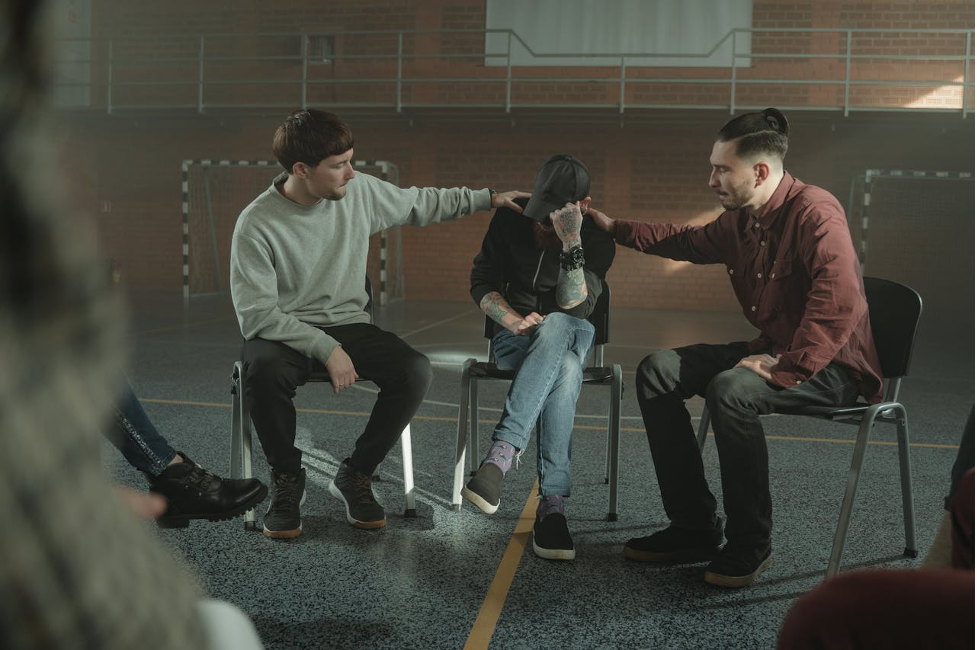
Alcoholics Anonymous’ 12-step program has long been the preferred recovery method for many seeking to become and stay sober. However, if you are on the fence about trying it or have already tried it and failed, don’t give up on your journey to getting and staying sober. There are alternative programs with good track records that you could look into.
12-Step Program Overview
The 12-step program is a 12-step approach to overcoming cravings and addictions. It was initially created and implemented by Alcoholics Anonymous (AA). This model’s central idea is that individuals can support one another in achieving and maintaining alcohol abuse abstinence. They can do this through attending meetings twice a week on average. There, they encourage one another to continue staying abstinent by sharing their experiences.
The catch is that alcohol addiction victims must turn themselves over to a higher power for their healing to occur. This higher power doesn’t have to be the conventional Christian conception of God; it could be something as basic as the universe, the 12-step group, or another higher power that resonates with your particular spirituality.
Aside from surrendering to a higher power, the 12-step program also outlines the following:
- Knowing and accepting that there exists a problem with addiction.
- Self-restraint aided by self-reflection along with an understanding of the behaviours that contributed to and resulted from the addiction
- Empathy for those impacted by the addiction as well as for those who similarly battle addiction
The average time required for an individual to complete the 12 steps once varies. However, to see success, it is advised to attend at least one meeting every day for three months. Consistency can be an issue, though, since around 40% of AA members drop out during their first year of attending.
Alternatives to the 12-Step Program

Despite the success stories of 12-step program practitioners, not everyone can resonate with it. Some simply don’t have enough faith in any form of higher power, while others don’t like the idea of having no power over their addiction. The program can also be too inflexible to accommodate the specific situations of some recovering alcohol abuse victims. Fortunately, there are good alternatives around. Here are some of them.
SMART Recovery
SMART Recovery—which stands for Self-Management and Recovery Training—was founded in the United States in 1994. It’s a novel approach to addiction treatment and a response to the increasing number of people seeking an evidence-based, secular alternative to the popular 12-step addiction recovery program.
SMART Recovery employs a peer-sharing model akin to 12-step programs, although it does not rely on the concept of surrender. Rather, it encourages the person to take charge of their own addiction treatment and rehabilitation. The method incorporates rational emotive behavioural therapy (REBT), cognitive behavioural therapy (CBT), and other research-proven strategies for beating addiction and living a healthy lifestyle.
It is predicated on the 4-Point Scheme:
- Creating and maintaining the will to change
- Managing unwanted cravings and desires
- Effectively controlling thoughts, emotions, and actions without engaging in addictive behaviours
- Leading a healthy, happy, and balanced life
LifeRing
LifeRing Secular Recovery empowers them to take charge of their own healing by helping participants identify their triggers and develop strategies to overcome them. It presents the idea that every victim has a sober self and an addict self. While the latter wants to achieve long-term sobriety despite the obstacles, the former wants to control their decision-making, which leads to alcohol abuse. The program supports the victims in their attempts to weaken their addict self and strengthen their sober self.
Members of the program practice connecting with other people’s sober selves in meetings by using their own sober selves as a resource. It is recommended that individuals prioritise their present lives over the pains and losses of the past. Speaking with one another, sober self to sober self, two people with an addiction can grow from one another’s knowledge and support.
The three pillars (3-S) of LifeRing’s ethos are sobriety, secularity, and self-help. LifeRing offers various resources to help users become and remain addiction-free. These include local in-person and online meetings, a supportive community, guidance, information, and a range of publications and online resources.
As an alternative to AA, it holds that each person should determine what sustains their sobriety the most and use that to stay sober. It suggests that people in recovery must put in a lot of effort every day to live as sober people because the addicted self still exists and always will.
Secular Organizations for Sobriety
Secular Organizations for Sobriety (SOS) is a 12-step program alternative based on the writings of its founder, James Christopher, who became sober in 1985. This recovery approach, which is sometimes called Save Our Selves, is intended for nonreligious individuals who are struggling with their addiction to drugs, alcohol, or food.
The disease model of addiction serves as the foundation for its theory, which explains alcohol abuse, disorders related to alcohol use, and nonreligious alcohol recovery. According to SOS, people who take personal responsibility and rely on themselves can successfully recover from secular addiction over the long term.
It rejects the 12-step philosophy that the only way to recover is to surrender your life to a higher power. According to the SOS sobriety approach, anyone can maintain sobriety if they make sobriety their top priority in life.
The core idea behind SOS is to break the cycle of addiction by establishing a better one called the “cycle of sobriety,” which consists of the following three components:
- Acknowledgment of alcohol use
- Acceptance of alcohol abuse issues
- Making maintaining sobriety the top priority in life
Find a Treatment That Works Best for You
Finding the best alcohol addiction recovery program is an important undertaking because the success of the whole rehab process may depend on it. Learning your options and discussing them with your doctor, therapist, or other medical professional is important.
Modern recovery programs, like the one provided at HARP Treatment Centre for alcohol addiction, might be the turning point you’ve been waiting for. We offer a patented 5i curriculum with a cutting-edge, holistic methodology that blends therapeutic and clinical techniques. Our top-of-the-line facilitators, psychotherapists, and medical professionals work together to bring you exceptional programs to support your recovery from alcohol addiction.



